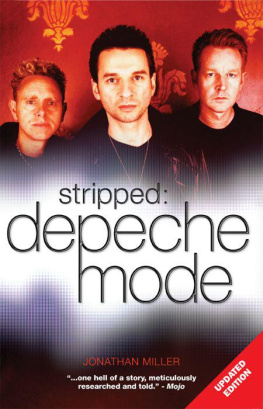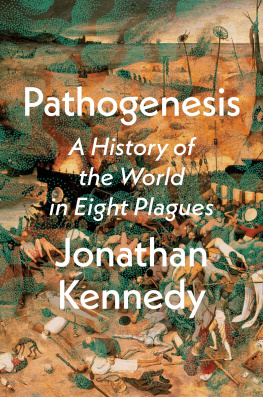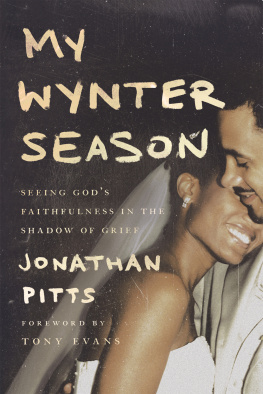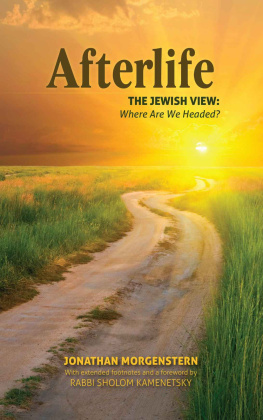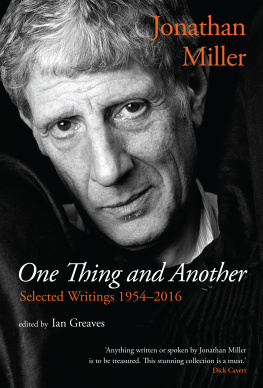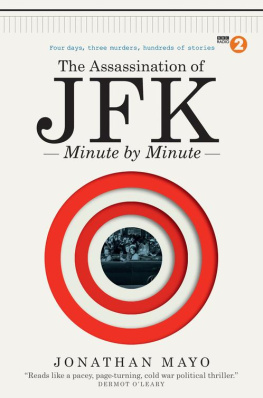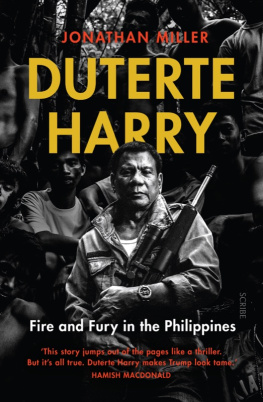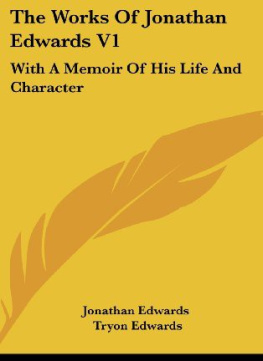Acknowledgments
I was undoubtedly fortunate to have the parents I inherited though I didnt always appreciate this during their lifetimes. I look back now with pride at my fathers many achievements, both as a founder of English child psychiatry and as a thinker and talented amateur artist. My mother taught me a most valuable lesson which has had a profound effect on my approach to direction. This was that I should make every effort to make the negligible considerable.
After a series of schools around England which I attended during the war my parents sent me to St Pauls in London where I had the good fortune to be taught by a brilliantly inspiring biology teacher called Sid Pask. With me in his class were future lifelong friends, Oliver Sacks and Eric Korn.
At Cambridge, my interest in neurology, animal behaviour and philosophy of mind was stimulated by teachers such as Norwood Russell Hanson, Horace Barlow, Jack Goody and Robert Hinde. My future brother-in-law Karl Miller introduced me to the Apostles, which was at that time a secret society meeting weekly in the rooms in Kings belonging to E.M. Forster. The people I met in the Apostles Francis Haskell, Michael Jaff, Noel Annan, Ronald Bryden, Neil Ascherson, Gary Runciman, Nick Monck, historians, economists, sociologists, and art historians none of them scientists were to have a profound effect on the scope of my future interests.
While I was in London completing my medical training I learned a lot from William Goody, the consultant neurologist at UCH, and became friends with philosophers A.J. Ayer, Richard Wollheim and Stuart Hampshire through attending lectures across the road in University College.
Someone who had a great influence on my visual imagination was Germano Facetti who was at that time art editor of Penguin books. He introduced me to pictures and illustrations with which I had been previously unacquainted.
I met Richard Gregory across the road from our house at the home of Colin Haycraft who was the owner of the publishing company Duckworths. In the years that followed I had many conversations with Richard, who directed my attention to his life-long interest in visual illusions. One further philosopher who has had a profound influence on my thought was Brian OShaughnessy who introduced me to the notion of sub-intentional actions.
During my time in New York I met people who seemed much more open to cross the boundaries of different fields of interest than anyone I had ever encountered in England. I was there at the moment when the New York Review of Books came into existence as a result of a strike at the New York Times. Most of my friends were connected with the NYRB Robert Silvers who has been its editor since that time, Jason and Barbara Epstein, Susan Sontag, Alfred Kazin, Robert Lowell and his then wife Elisabeth Hardwick, Philip Roth, Nelson Aldrich.
During my frequent subsequent visits to the United States I became profitably acquainted with philosophers such as Ronald Dworkin and Colin McGinn.
During my two residences in Berkeley when we stayed in a house once owned by one of my greatest heroes and influences, Erving Goffman, I struck up a profitable friendship with the philosopher John Searle who introduced me to the distinguishable peculiarities of Speech Acts.
Around 1970 I was invited by Jonathan James Moore and Stephen Wright to direct Twelfth Night for the Oxford and Cambridge Shakespeare Company which they had founded. This was both successful and enjoyable. I went on to do several further productions for them, among them Hamlet in which my Ghost was Andrew Hilton who went on to run the Tobacco Factory in Bristol and many years later invited me there to do a new production of Hamlet in which he repeated his original role.
I would probably never have gone into opera if I had not been invited by Roger Norringtons wife, Sue, to direct a childrens production of Benjamin Brittens Noyes Fludde in the Round House in Camden Town. In the years that followed I had an enormously enjoyable collaboration with Roger Norrington and Kent Opera. When I told him that I couldnt read music he had said it was OK as he could. And so it turned out.
It was George Harewood, then the artistic director of the English National Opera, who unexpectedly allowed me to update Rigoletto. I had the greatest respect for him and it was under his aegis that I went on to do several successful productions including another unexpected interpretation, this time of the Mikado.
I cant finish this list without mentioning some of the people whom I have so enjoyed performing with, and others who have so generously allowed me to direct them. I spent two years appearing on stage in Beyond the Fringe with Peter Cook, Alan Bennett and Dudley Moore, and we managed to remain good friends. There are some actors with whom I have worked many times over the years always with renewed pleasure Penelope Wilton, Peter Eyre, John Bird and John Fortune and, of course, the remarkable Michael Hordern. Three singers among many others who have given me outstanding performances have been Thomas Allen, who was in the original production and several revivals of my Cosi Fan Tutte at Covent Garden, and John Tomlinson who was my first Sparofucile at ENO and later a wonderful Baron Ochs in Rosenkavalier. Ruggiero Raimondi was a most beguiling Figaro in my production of the Marriage of Figaro in Vienna.
Although I have designed several of my own productions none of them compared to what I was able to achieve when I collaborated with such talented designers as Bernard Culshaw, Julia Trevelyan-Oman, Pat and Rosemary Vercoe, Richard Hudson, Peter Davison and, lastly, Isabella Bywater with whom I have had a long and affectionate working relationship for the last 16 years.
I also owe a great deal to Karl Sabbagh and Patrick Uden who produced and directed the Body in Question.
Karl Sabbagh encouraged me compile this collection and has worked tirelessly to unearth the writings which we have included.
Last, but not least in this list of friends and influences, I cant even begin to express my gratitude for the assistance and affectionate tolerance of my wife Rachel.
Some of the pieces in this book have appeared in the following works, identified by title after each relevant piece:
Nowhere in Particular, published by Mitchell Beazley, 1999
The Body in Question, published by Jonathan Cape, 1978
Camouflage, published by Thames and Hudson, 2007
States of Mind, published by BBC Publications, 1983 and included with the permission of the Literary Estate of E. H. Gombrich
Subsequent Performances, published by Viking, 1986
In republishing the pieces in this book, I have made occasional small changes or deletions. I am grateful to the following, who first published them and who, where appropriate, have given permission for them to be reprinted:
The Spectator
The New Statesman
The New Yorker
New York Review of Books
Random House, first chapter of The Body in Question
Leonie Gombrich, interview with Sir Ernst Gombrich, States of Mind
Thames and Hudson, Camouflage
The Estorick Collection, catalogue for exhibition, On the Move: Visualising Action
Henry Holt and Company, A Considerable Speck, by Robert Frost
From England to America
I dont think I wrote a word until I left Cambridge in 1956, although I drew occasional cartoons for Granta. But while I was engaged in clinical medicine, at University College Hospital in Gower Street, my brother-in-law, Karl Miller, whom I got to know while I was at Cambridge, had become literary editor of the


